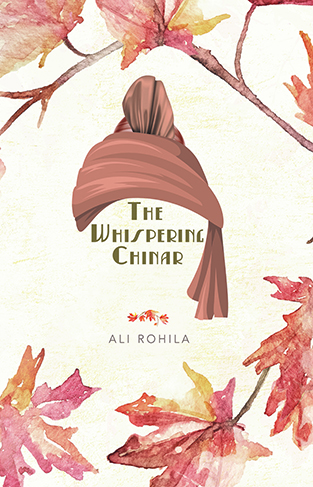By Ali Rohila
ISBN: 9786277626068
The Whispering Chinar, explores tricky and taboo topics, with mostly inter-connected short stories which albeit interesting, come across as work-in-progress leaving the reader wishing the stories had been developed more.
Synopsis
In Charbagh, Khyber Pakhtunkhwa, a short detour from the Grand Trunk Road that leads towards Afghanistan, stands a chinar tree in the garden of Khan Mohammad Usman Khan. Legend has it that it was planted by a saint known to the grandfather of Khan, who had told him that the family would prosper as long as the tree survived. The tree has stood for generations, a silent witness to the many stories of Charbagh.
In Charbagh, a village where modernity slowly creeps in, there are tales of unrequited love and family honor, of religious persecution, of patriarchy and the breaking of its shackles, and of what it means to belong to Charbagh.
Here, Fahad Khan falls in love with Saad Bibi, but it is a dangerous affair that threatens to uproot social norms. An imam competes with a more dogmatic proponent of Islam for devotees, while an English teacher is charged with the crime of blasphemy. Nazo learns that the progressive views of her family have their limits. A wheelchair bound social worker stands up to a religious extremist.
Starting from the 1970s, when the furor of the Indus River was effectively seduced by a dam constructed near Charbagh, these stories chronicle a time and a place of belonging, of nostalgia and of relationship and friendships.
What’s to like
The Whispering Chinar is a daring debut, given the themes, including patriarchy, religious extremism and landed elites and their lust for power, which it takes on in its collection of short stories. Ali Rohila, being a Pukhtoon himself, appears to have tasked himself with presenting an ethnographic account of Pukhtoon people, living both close and far from their hometown of Charbagh in Khyber Pakhtunkhwa. Writing about topics such as blasphemy can be a tight rope to walk on in Pakistan, where religious fervor can easily boil over into acts of violent extremism.
The prose itself is straightforward. The short stories are succinct, and the author lets the reader infer some aspects without going into too many details. Each story ends in a manner meant to elicit thoughts from the reader and make them deconstruct the story to understand how they feel about it.
What’s not to like
The book is a collection of interconnected short stories, with numerous characters the reader is not able to learn much about any character really. The stories are narrated in a matter-of-fact way and the reader feels like they are watching the stories unfold from a distance instead of getting into the messy details of human interactions.
It also feels like some of the stories are not developed as well, such as Imran’s story titled ‘The Office’, who is on the quest to earn his boss’s approval no matter how hard he needs to work. The overarching theme of Charbagh is also not as obvious in every story such as in ‘The Office’. Some characters appear in more than one story, making the narrative for these stories flow better and making them sound more connected than the rest. Moreover, the characters are mostly all unlikeable and each story explores a negative theme. It would have been great to have some stories exploring positive aspects of the Pukhtoon culture and offer some hope in all the doom and gloom.
Book Review Rating: 3/5
Content Rating: High
Content Warnings: Mental health issues, suicide, pre-marital relations and sexual harassment. Age advisory: 16+


